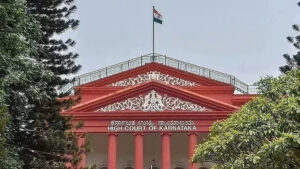In the realm of Environmental, Social, and Governance (ESG) research, the pursuit of knowledge and truth is fundamental to advancing our understanding of complex societal issues and driving positive change. However, the principle of academic freedom, which lies at the heart of scholarly inquiry, is facing unprecedented challenges in the context of ESG research. As external pressures mount and ideological agendas come into play, the integrity and independence of ESG research are under threat. Here’s a closer look at the importance of preserving academic freedom in ESG research and the urgent need to safeguard scholarly inquiry from undue influence:
The Essence of Academic Freedom:
- Unfettered Inquiry: Academic freedom is the cornerstone of scholarly inquiry, allowing researchers to pursue knowledge and explore ideas without fear of censorship, interference, or reprisal. It enables scholars to question prevailing assumptions, challenge established paradigms, and push the boundaries of human understanding.
- Intellectual Integrity: Central to academic freedom is the principle of intellectual integrity, which requires researchers to adhere to rigorous standards of evidence, objectivity, and transparency in their pursuit of truth. It fosters a culture of open dialogue, constructive debate, and intellectual exchange, essential for the advancement of knowledge and innovation.
Threats to Academic Freedom in ESG Research:
- Commercial Interests: In an increasingly commercialized research environment, the influence of corporate interests and financial incentives can compromise the integrity and independence of ESG research. Pressure to produce favorable findings or suppress inconvenient truths may lead to biased or distorted research outcomes, undermining the credibility of the academic enterprise.
- Political Ideologies: ESG research is not immune to ideological pressures and political agendas, which can distort research priorities, suppress dissenting viewpoints, and stifle academic freedom. Attempts to politicize research findings or impose ideological conformity threaten the diversity of perspectives and the free exchange of ideas essential to scholarly inquiry.
Safeguarding Academic Freedom:
- Protecting Independence: Institutions must uphold the principles of academic freedom and safeguard the independence of ESG research from external influences. This requires robust governance structures, transparent funding mechanisms, and safeguards against conflicts of interest to ensure the integrity and credibility of research outcomes.
- Promoting Diversity: Embracing diversity of thought, methodology, and perspective is essential to fostering a vibrant research community and advancing knowledge in ESG research. Institutions should promote interdisciplinary collaboration, support marginalized voices, and cultivate an inclusive research culture that values intellectual pluralism and academic freedom.
Sponsored
FACTS Transcripts
Apply for a University document anywhere
https://www.factstranscript.com
Quick Transcripts for popular Universities, check your University name now and get started. We help you to get your transcript application online which is accepted for use of IRCC.
No DD, NO Paperwork. 100% Authentic, Reliable.
FACTS Transcripts Charges · Reviews · Assam Universities · Home · Know your University









